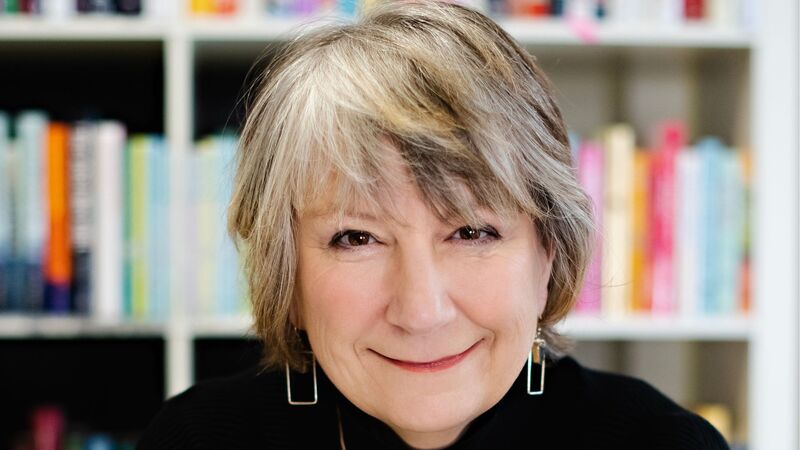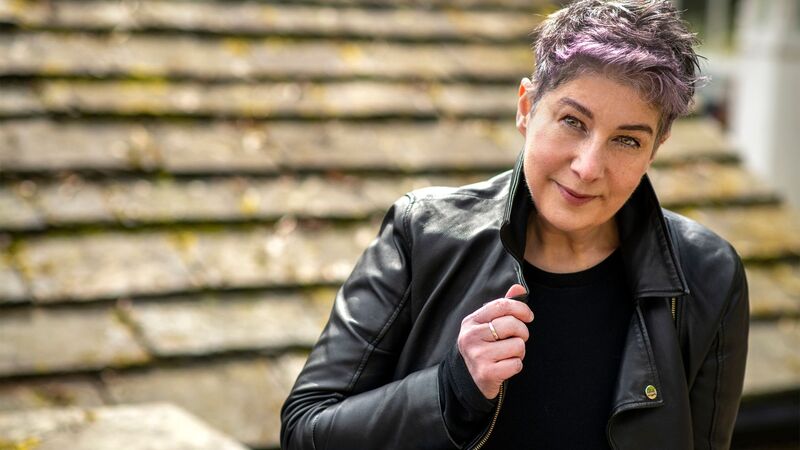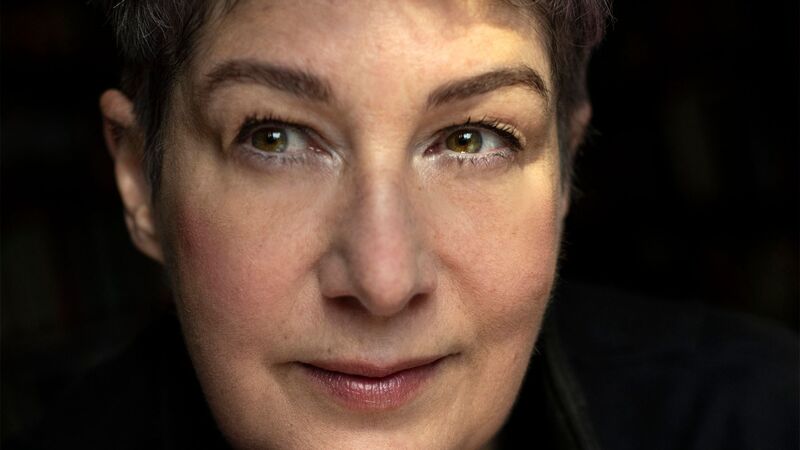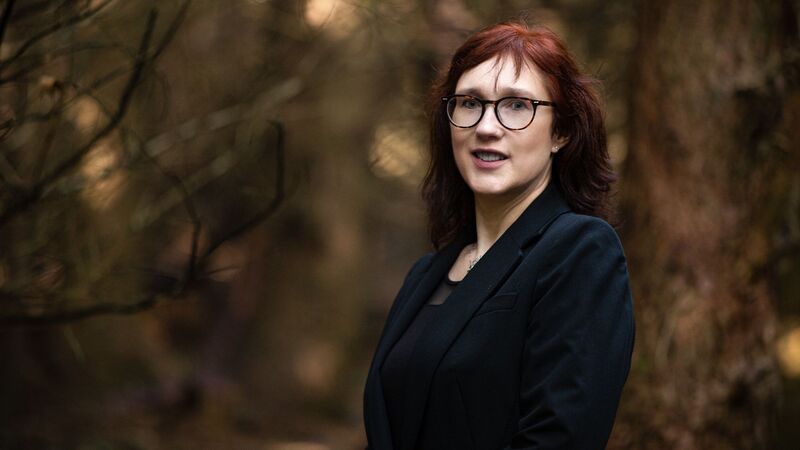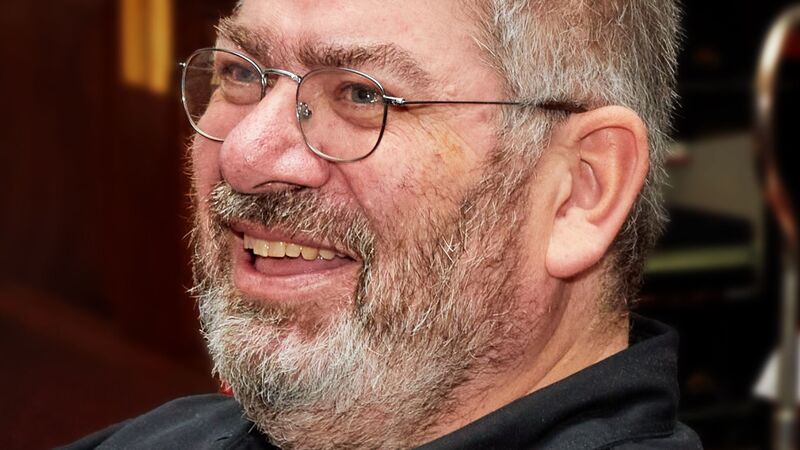You are viewing your 1 free article this month. Login to read more articles.
Rebuck: Pipeline of women execs is 'woefully low'
Penguin Random House chair Gail Rebuck has said the pipeline of women executives in FTSE 100 companies is “woefully low” and that she is “quite close” to being in favour of quotas, should things not be seen to be moving in “the right direction”.
Speaking at the Oxfordshire Publishing Group Summer Conference yesterday (14th June) in conversation with journalist and TV presenter Mariella Frostrup, on the subject of women in senior positions in business and in publishing, Rebuck said of the FTSE 100 companies: "I’m moving towards quotas actually. Quite close. I’m waiting to see where the numbers go both in terms of boards and pipeline before I pronounce. If we’re not going in the right direction, you will find me nailing my colours to the quota mast.”
Rebuck contrasted her views of FTSE 100 companies, with the historical success publishing has had promoting female executives, Rebuck predicted a “next wave” in the next 10 or 15 years in which “women will percolate to the top” in publishing. Rebuck and former HarperCollins c.e.o. Victoria Barnsley stepped down in 2013, sparking debates around women in leadership within the trade. This was further fuelled by Little, Brown c.e.o. Ursula Mackenzie’s exit from her role in 2015 to become chairman, a position she will also relinquish at the end of 2016.
While Rebuck said of the current situation: “Interestingly most women c.e.o.s have now for one reason or another left the industry. Either because they’re too old like me or gone on to do other things. We have a large number of women at divisional level, very good numbers, but very few - not anyone - at the top as a c.e.o. of one of the ‘Big Five’."
Looking outside of publishing, she suggested the major economic downturn could be one factor behind senior managers’ and boards’ “unconscious conservatism” when choosing whether or not to invest in and progress women to the top echelons. “I’m afraid they tend to revert to people like them,” she said. “I don’t think it’s conscious necessarily, but there was a kind of ‘oh my god, things are terrible, let’s go back to the trusted than take a risk on getting this woman up through the ranks’; and I’m not talking about publishing now.”
Questioned about the challenges of juggling motherhood and her career, she confided there was no “agonising” over the decision for her, whatever guilt she may have felt, saying she had "a responsibility” not only to herself but to other women, including her daughters “to keep going to show it could be done and things will sort themselves out”. She added: “Whereas now I think women are presented with all the things that could go wrong.”
“One of the biggest problems young women have is they have a sense of needing to be a perfect executive and at the same time a perfect mother - neither is possible,” she said.
(L-R) Baroness Gail Rebuck, Bloomsbury Publishing's chief executive Nigel Newton and Mariella Frostrup.
Rebuck agreed with Bloomsbury's founder Nigel Newton who posed a question from the audience, that it is “tough” being a c.e.o. in the modern world, where everything moves so fast, and it wasn’t necessarily for everyone. She admitted during her time as c.e.o. “there was a level of stress that was pretty constant and difficult to wind down from” and that it could also be a “lonely” job. She said: “I think it takes a certain type, however my only point is ‘that type’ could be a woman or a man. At the moment it’s rather skewed towards men, so all I would say is allow women that opportunity should they want to - and allow men the opportunity not to.”
Author Joanne Harris, who also appeared at the OPG’s summer conference, said the lack of diversity in publishing was turning off younger generations and independent authors, particularly those she’d spoken to online, who were “rebelling against the establishment”. She said publishing needed “to take a little responsibility” for the perception prevalent among the younger generation that traditional publishing was “greedy” and “sales driven” because it is “an expression of the frustration about the lack of diversity”.
Urging publishers to take more risks, she said: “There are not many diverse authors compared to white middle class authors,” and shook her head describing an instance in which she’d heard of a publisher who had reviewed a manuscript as “quite good, but we can’t publish two lesbian authors in one year”.
Harris used her own international bestseller, Chocolat (Black Swan), as an example where a book had bucked market trends, disproving the sentiments of numerous rejection letters, showing “sometimes the market doesn't know all that much”.
“Can you commoditise what people want to read by scraping the internet and somehow intuit what people might want,” Rebuck pondered. “I think we’re a long way from that.
“The magic is where intuition and consumer insight meet. It’s that kind of lozenge in the middle: that’s the magic.”
Also speaking at the conference yesterday was Bloomsbury c.e.o. and founder Newton on Bloomsbury’s journey from trade to academic and from print to digital; Richard Ovenden of the Bodleian Libraries in a panel discussion on ‘curating culture’; and a host of ‘break out’ sessions held with head of digital at Pearson UK Marc Block, editorial director at Taylor & Francis Liz Marchant, group international director at Hodder Eduducation Robert Sulley and Blackwell's Euan Hirst.
This piece has been updated to say that the conference was in fact held by the Oxfordshire Publishing Group, not Oxford University Press, as was first stated. It also misrepresented Rebuck's comments about female chief executives, which were primarily aimed at FTSE 100 companies, not publishing companies.












